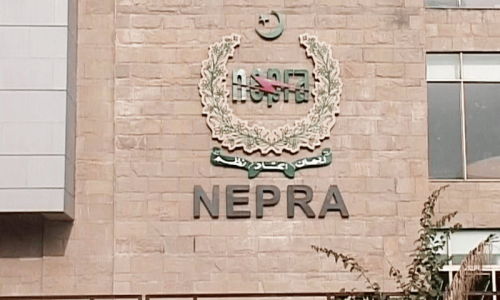 Midway through the past week Alistair Darling, Britain’s Chancellor of the Exchequer presented what appeared to be a conventionally cautious budget in the House of Commons. But for smokers, pub crawlers gas-guzzling car owners and non-domiciled investors it sounded more like an extortionist budget.
Midway through the past week Alistair Darling, Britain’s Chancellor of the Exchequer presented what appeared to be a conventionally cautious budget in the House of Commons. But for smokers, pub crawlers gas-guzzling car owners and non-domiciled investors it sounded more like an extortionist budget.
The largely wary budgetary proposals announced for the next fiscal year clearly reflected the narrow room of manoeuvrability the Chancellor was allowed by the visible slow down of British economy, creeping rate of domestic inflation, looming world-5wide recession, soaring international oil and food prices and the unanticipated nationalisation of Northern Rock, one of Britain’s largest mortgage banks.
Tax effort appears too tentative and borrowing for balancing the book too conservative. The tax proposals include: New flat rate capital gains tax charge of 18 per cent for individuals, up from 10 per cent. Basic rate for income tax drops from 22 to 20 per cent and the 10 per cent band is abolished. An unpopular new charge of £30,000 on non-domiciled residents. Beer duty will increase by 4p per pint, wine up 14p a bottle, cider up 3p a bottle and spirits up 55p a bottle. Tobacco duty rose on the day the budget was announced by 11p per packet of 20 cigarettes and 4p for five cigars. The alcohol duties will see increase by two per cent above inflation for the next four years.
A 2p per litre fuel duty increase will become applicable from October 2008. This will go up by half a penny per litre in 2010. A one-off £950 tax will be imposed on the most polluting new cars. An increase was also announced in the amount airlines will have to pay to become “greener” - an extra 10 percent on plane duty in the second year of a new per-flight tax regime, replacing Air Passenger Duty (APD) from November 2009. Mr Darling also ordered stores to ban single-use carrier bags by next year or face legislation - and announced a review of carbon targets with aim of reducing emissions by 80 per cent by 2050, up from 60 per cent.
Relief efforts on the other hand seem also to be too tentative and tight fisted. Some £60 million will be spent over the next three years to encourage people to enter work and progress. £10 million will be spent over the next five years to create a new science fund for teachers in secondary schools. Investment of £200 million is proposed in underperforming schools in an effort to improve GCSE grades by 2011
. Some £8 billion will be made available for affordable housing. Stamp duty on shared ownership has been abolished up to a limit of 80 per cent ownership.Child benefit will be up to £20 per week for the first child in 2009, a year earlier than planned. Child element of child tax credit is to be raised by £50 above inflation. Measures to combat child poverty: total £125 million over the next three years.Tax-exempt limits on individual savings accounts raised to £7,200 a year for standard accounts and to £3,600 a year for cash accounts. And an additional £2 billion will be made available for defence, including £900m on new equipment.
Since the give-aways in the budget were almost non-existent, political observers here ruled out the possibility of an election in 2009.
Announcing his Budget proposals, Mr Darling said: “This year’s budget is a responsible budget that will secure stability in these times of global economic uncertainty.”
”Turbulence in global financial markets - which started in the American mortgage market - has affected all economies from the United States to Asia, as well as Europe,” he said.
 ”Britain is better placed than other economies to withstand the slowdown in the global economy,” he said.
”Britain is better placed than other economies to withstand the slowdown in the global economy,” he said.
”We will do everything in our power to maintain stability,” he said.
However, he was challenged on this score by Conservative leader David Cameron who dismissed his budget statement as, “a dire list of reviews and re-announcements”.
”The cost of living is going up and Labour is making it worse,” added Mr Cameron.
Liberal Democrat leader Nick Clegg said Mr Darling could have helped “the millions of hard pressed families who are feeling the pinch”.
But instead he had delivered a “meagre tinkering budget which gives precious little help to the poor but maintains special treatment to the rich”.
The environmentalists claimed that the ‘green’ proposals in the budget had been greatly nullified by allowing the expansion of Heathrow and Stansted airports.
And reacting to the Chancellor’s Budget speech, Richard Lambert, director-general of the Confederation of British Industries (CBI), said:
”The Chancellor didn’t set the Thames alight, but then he didn’t have anything to set it alight with.
”On the surface there are no nasty surprises, but his growth assumptions are optimistic and leave him with no room for manoeuvre should things take a turn for the worse.
”Borrowing also looks set to rise by a further £20 billion over the next four years, which is a cause for concern. And by 2010/11, the impact of this budget will be to raise total tax take by nearly £1.9 billion.
On tax complexity, Mr Lambert said: “107 new technical tax proposals don’t support the Chancellor’s claims to be moving towards a simpler tax system.”
He welcomed what he called some worthwhile changes made to core aspects of the non-domiciled charge proposals, notably leaving alone gains and income from assets in trusts kept offshore, and pledging to avoid double taxation issues.
“All this will soften the impact. However damage has been done to the UK’s reputation for tax stability and as a country which actively wants to attract talent and capital.
”When the legislation is finalised over the coming weeks it must be crystal clear, especially in relation to double taxation, in order to rebuild confidence in the system. This is particularly important if the welcome assurance that the regime will not be changed for several years is to have its desired effect of delivering certainty. Then it will be a case of waiting and seeing what the fall-out of the whole process and final proposals will be.”















































Dear visitor, the comments section is undergoing an overhaul and will return soon.